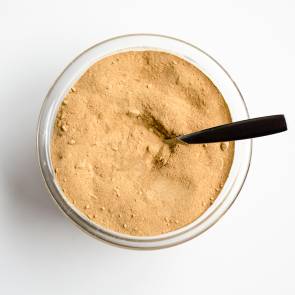
Why go organic? The importance of choosing your foods carefully is becoming more and more relevant in a world where Genetically Modified (GM) foods are widely available with no identifying label. In some cases, the natural and organic 'variant' of a food is no longer even available, having been completely replaced with their GM counterpart.
A professional scientific study led by molecular biologist Professor Gilles-Eric Seralini and carried out at Caen University in France has found startling results when feeding rats a diet of exclusively GM corn (NK603). The study has been reviewed by independent scientists to guarantee that the experiments were properly conducted, and that the results are valid. The study was published in the US journal Food and Chemical Toxicology on September 18th, 2012.
Rats that were fed a lifelong diet of the best-selling type of GM corn on the market suffered from multiple cancerous tumors and severe damage to their organs. Scientists believe that this raises very important and critical questions about the safety of GM foods for human consumption, as well as the validity of the safety claims made by biotech companies. This was the first experiment which tested the effects of GM foods in rats over their entire lifetime (2 years). To date, all other studies lasted around 90 days, so they did not provide results regarding the long-term consumption of GM foods.
The results were as follows, as published on the Dailymail:
- Between 50 to 80 per cent of female rats developed large tumors by the beginning of the 24th month, with up to three tumors per animal. Only 30 per cent of the control rats developed tumors.
- Up to 70 per cent of females died prematurely compared with only 20 per cent in the control group.
- Tumors in rats of both sexes fed the GM corn were two to three times larger than in the control group.
- The large tumors appeared in females after seven months, compared to 14 months in the control group. The team said the tumors were ‘deleterious to health due to a very large size’, making it difficult for the rats to breathe and causing digestive problems.
Most European consumers do not consume GM foods and have turned their back on this technology due to uncertainties in health safety, however GM foods are widely available and embraced in the US, and even in Canada, albeit to a lesser degree.
Anthony Trewavas, professor of cell biology at Edinburgh University, has his doubts about the research. He believes that the number of rats used in the study, about 200, was too small a group from which to draw conclusions. Dailymail quoted him as saying: "To be frank, it looks like random variation to me in a rodent line likely to develop tumors anyway". He also believes that Professor Seralini is an anti-GM campaigner, and added that previous studies which examined the issue had not withstood scrutiny.
Priya Prakash, Naturopathic Doctor at AwakenLife in Ottawa, Canada, and co-founder of Shanti Tea, says that while some might scrutinize this study as not having a large enough sample size, or not being relevant to humans, it would be highly unwise to ignore these results when making our own daily food choices.
Dr. Prakash explains, "there is an overwhelming amount of research now showing how GM foods affect our health. Genes that are inserted into GM foods can readily pass into our own genome, through the genetic exchange that happens between the food and our natural bacteria that live in the gut. These novel DNA ____ can physiologically affect our own DNA expression, making us more susceptible to developing cancer in the future. This study didn't just show a small number that developed disease - it was a huge percentage, which begs the question of how our modern diets are affecting us."
How does all this affect our decisions at the grocery store?
Dr. Prakash says that "with no current labelling laws in Canada, it is unknown just exactly how much GM foods that we are consuming, but it's very likely more than 1/4 of our diet. Would you want to take the risk of waiting for larger studies to come out before making a change? Choose your foods wisely. All processed foods are usually made up of corn, wheat, and soy, which are the top GM grains produced. In order to avoid GM foods, eating a whole-foods unprocessed diet is your best protection. Eating mostly organic foods will also limit your exposure to GM foods. Ultimately it's about choices - eating this way will also improve your health in many ways and boost your body's natural resilience against cancer."
Shanti Tea Secret: Which crop was used in this experiment? Use the answer as a coupon code at checkout to get 10% off your order, but hurry; this coupon code can only be used once. This coupon will expire November 9th, 2012.









